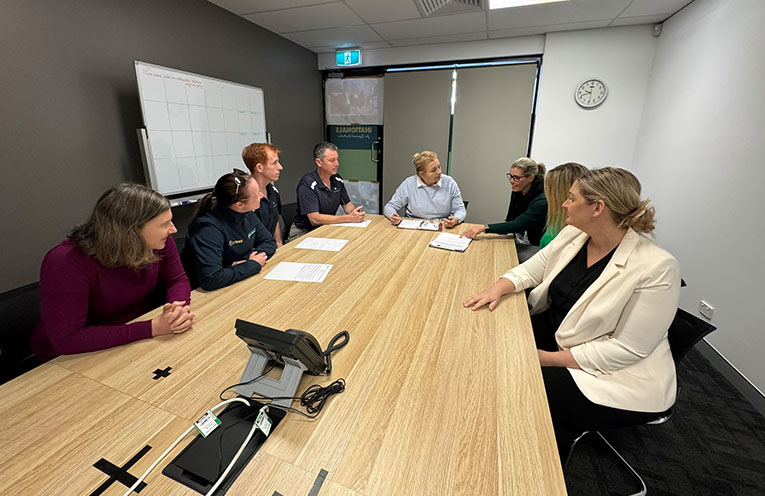FEDERAL Member for Lyne Alison Penfold is calling on the Federal Government to urgently revoke the latest National Disability Insurance Scheme (NDIS) pricing changes, warning of the “significant negative impacts on people with a disability living in regional and remote areas”.
The changes, announced following the Government’s NDIS Annual Pricing Review, came into effect on 1 July and altered the pricing structure for allied health services such as occupational therapy, speech therapy, and physiotherapy.
The change also caps travel costs to 50 percent of the hourly charge, capped at 30 minutes (metro) or 60 minutes (remote).
“I recently sat down with a group of local allied health professionals from across the Lyne electorate,” Ms Penfold said.
“Their message was clear: this decision is not clinically informed, not regionally fair, and not economically sound.
“The consequence will simply reduce service delivery in homes and natural environments, which is precisely where many people need it most.”
Ms Penfold said the impact of the travel cost change would be felt hardest in isolated and rural areas without access to public transport, whose only path to support is through mobile or home-based care.
“This is a city-centric decision that undermines the safety and accessibility of essential services,” she said.
“It does not appear that the regional impacts were properly considered, and I hold serious concerns about the data on which these changes were based.”
Another change in the price review is an expansion of the NDIS’ early childhood approach, which now supports children up to age nine, from the previous limit of seven.
Remote area loadings have also been discontinued for plan managers and intermediaries.
According to the National Disability Insurance Agency (NDIA), a mix of market data, research, and public and industry engagement is utilised to inform changes to pricing arrangements and price limits through its Annual Pricing Review.
“The NDIA regularly reviews and makes changes to pricing arrangements to ensure our approach better meets the needs of participants, their families, carers and providers… [and] remains affordable and in place for future generations of Australians,” the NDIS website states.
“This is done by appointing expert committees, financial benchmarking, and forming dedicated working groups.”



